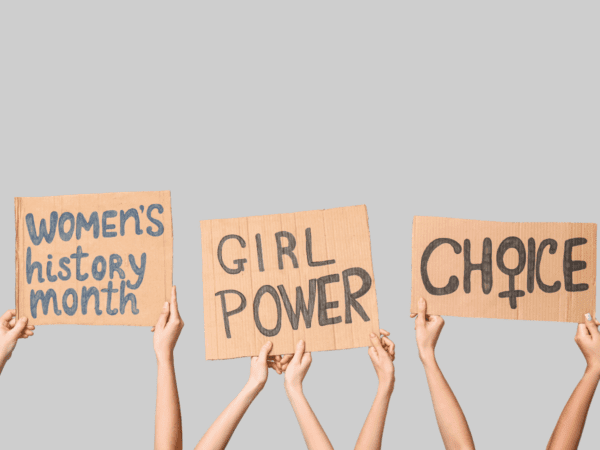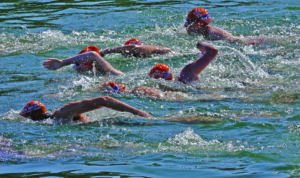By Kayla Girdner, for Avid Reader
What is the Avid Reader reading in March?
The team at Avid rounded up more than a dozen non-fiction books on notable women in history, or that focus on women’s struggles.
Here are my top 5 (with notes!):
The Black Angels by Maria Smilios
New York City, 1929. A sanatorium, a deadly disease, and a dire nursing shortage.
This remarkable true story follows the intrepid young women known by their patients as the “Black Angels.” For twenty years, they risked their lives working under appalling conditions while caring for New York’s poorest residents, who languished in wards, waiting to die, or became guinea pigs for experimental surgeries and often deadly drugs. The Black Angels recovers the voices of these extraordinary women and puts them at the center of this riveting story, celebrating their legacy and spirit of survival.
Good and Mad by Rebecca Traister
Journalist Rebecca Traister’s New York Times bestselling exploration of the transformative power of female anger and its ability to transcend into a political movement is “a hopeful, maddening compendium of righteous feminine anger, and the good it can do when wielded efficiently—and collectively” (Vanity Fair).
Highlighting a double standard perpetuated against women by all sexes, and its disastrous, stultifying effect, Good and Mad is “perfectly timed and inspiring” (People, Book of the Week). This “admirably rousing narrative” (The Atlantic) offers a glimpse into the galvanizing force of women’s collective anger, which, when harnessed, can change history.
Wild Girls: How the Outdoors Shaped the Women Who Challenged a Nation by Tiya Miles
An award-winning historian shows how girls who found self-understanding in the natural world became women who changed America.
This beautiful, meditative work of history puts girls of all races—and the landscapes they loved—at center stage and reveals the impact of the outdoors on women’s independence, resourcefulness, and vision. Lyrically written and full of archival discoveries, Wild Girls evokes landscapes as richly as the girls who roamed in them—and argues for equal access to outdoor spaces for young women of every race and class today.
A History of Women in 101 Objects by Annabelle Hirsch
With engaging prose, compelling stories, and a beautiful full-page image of each object, Annabelle Hirsch’s book contains a curated and diverse compendium of women and their things, uncovering the thoughts and feelings at the heart of women’s daily lives. The objects date from prehistory to today and are assembled chronologically to show the evolution of how women were perceived by others, how they perceived themselves, how they fought for freedom. Wide-ranging, subversive, witty, and superbly researched, this is a book that upends all our assumptions about, and presentations of, the past, proving that it has always been as complicated and fascinating as the women who peopled it.
How to Think Like a Woman by Regan Penaluna
From a bold new voice in nonfiction, an exhilarating account of the lives and works of influential 17th and 18th century feminist philosophers Mary Wollstonecraft and her predecessors who have been written out of history, and a searing look at the author’s experience of patriarchy and sexism in academia
In How to Think Like a Woman, Regan Penaluna blends memoir, biography, and criticism to tell the stories of these four women, weaving throughout an alternative history of philosophy as well as her own search for love and truth. Funny, honest, and wickedly intelligent, this is a moving meditation on what philosophy could look like if women were treated equally.




